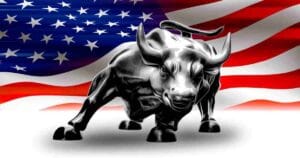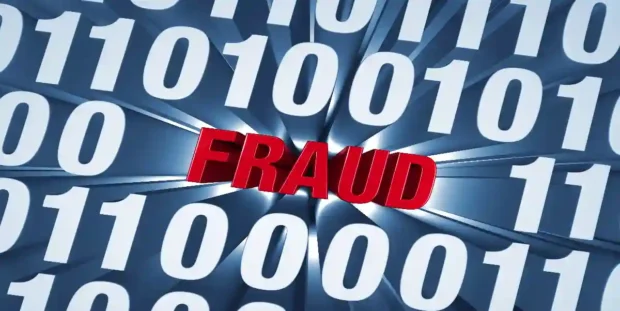Introduction to the Doubleverify Class Action Lawsuit

The DoubleVerify class action lawsuit seeks to represent purchasers or acquirers of DoubleVerify Holdings, Inc. (NYSE: DV) common stock between November 10, 2023 and February 27, 2025, inclusive (the “Class Period”). Captioned Electrical Workers Pension Fund, Local 103, I.B.E.W. v. DoubleVerify Holdings, Inc., No. 25-cv-04332 (S.D.N.Y.), the DoubleVerify class action lawsuit charges DoubleVerify and certain of DoubleVerify’s top executives with violations of the Securities Exchange Act of 1934.
If you suffered substantial losses and wish to serve as lead plaintiff of the DoubleVerify class action lawsuit, or just have general questions about you rights as a shareholder, please contact attorney Timothy L. Miles of the Law Offices of Timothy L. Miles, at no cost, by calling 855/846-6529 or via e-mail at tmiles@timmileslaw.com.
Lead plaintiff motions for the DoubleVerify class action lawsuit must be filed with the court no later than July 21, 2025.
DoubleVerify Hit with Securities Class Action
DoubleVerify’s investors saw a dramatic turn of events in their class action lawsuit when the company’s stock plummeted by a staggering 38.6% during May 2024. The share price dropped $11.79 to close at just $18.78. The advertising verification company blamed reduced customer spending as they lowered their 2024 revenue guidance. Things got even worse in February 2025 when the stock took another hit, dropping 36% after poor fourth-quarter results.
The lawsuit represents investors who bought the company’s common stock between November 10, 2023, and February 27, 2025. The complaint makes serious claims about the company’s practices. It states that DoubleVerify systematically overbilled customers for ad impressions that bots from known data center server farms generated. On top of that, it claims the company kept quiet about customers moving their advertising budgets from open exchanges to closed platforms. This change affected the company’s revenue potential by a lot. The deadline for investors to file a motion as lead plaintiff is July 15, 2025. The case shows how DoubleVerify’s risk disclosures might have misled investors.

Overview of the Allegations in the Doubleverify Class Action Lawsuit
DoubleVerify provides media effectiveness platforms.
The DoubleVerify class action lawsuit alleges that defendants throughout the Class Period made false and/or misleading statements and/or failed to disclose that:
- (i) DoubleVerify’s customers were shifting their ad spending from open exchanges to closed platforms, where DoubleVerify’s technological capabilities were limited and competed directly with native tools provided by platforms like Meta Platforms and Amazon;
- (ii) DoubleVerify’s ability to monetize on its Activation Services was limited because the development of its technology for closed platforms was significantly more expensive and time-consuming than disclosed to investors;
- (iii) DoubleVerify’s Activation Services in connection with certain closed platforms would take several years to monetize;
- (iv) DoubleVerify’s competitors were better positioned to incorporate AI into their offerings on closed platforms, which impaired DoubleVerify’s ability to compete effectively and adversely impacted DoubleVerify’s profits;
- (v) DoubleVerify systematically overbilled its customers for ad impressions served to declared bots operating out of known data center server farms; and (vi) DoubleVerify’s risk disclosures were materially false and misleading because they characterized adverse facts that had already materialized as mere possibilities.
The DoubleVerify class action lawsuit further alleges that on February 28, 2024, DoubleVerify issued lower revenue growth expectations for the first quarter of 2024 due to “a slow start by brand advertisers and a slow ramp by recently signed” customers. On this news, the price of DoubleVerify stock fell more than 21%, according to the complaint.
Then, on May 7, 2024, as the DoubleVerify class action lawsuit alleges, DoubleVerify cut its full-year 2024 revenue outlook due to customers that were pulling back on their ad spending. On this news, the price of DoubleVerify stock fell nearly 39%, according to the complaint.
The DoubleVerify class action lawsuit further alleges that on February 27, 2025, DoubleVerify reported lower-than-expected fourth quarter 2024 sales and earnings due in part to reduced customer spending, and defendants further disclosed that the shift of ad dollars from open exchanges to closed platforms was negatively impacting DoubleVerify. On this news, the price of DoubleVerify stock fell more than 36%, according to the complaint.

DoubleVerify faces class action over misleading investor statements
Several prominent law firms have started a class action lawsuit against DoubleVerify Holdings, Inc. (NYSE: DV), a digital advertising verification company. The lawsuit claims securities fraud and states that company executives made false statements. They also failed to tell investors vital information.
Lawsuit filed for class period between Nov 2023 and Feb 2025
The class action lawsuit represents investors who bought or acquired DoubleVerify common stock between November 10, 2023, and February 27, 2025. This timeline covers multiple earnings reports that allegedly had misleading information about the company’s business prospects and technology capabilities. The case “Electrical Workers Pension Fund, Local 103, I.B.E.W. v. DoubleVerify Holdings, Inc.” was filed in the United States District Court for the Southern District of New York. Investors must file a motion by July 21, 2025, to serve as lead plaintiff in the proceeding.
Investors allege false and misleading disclosures
The lawsuit’s main focus points to company executives hiding fundamental business challenges from shareholders. Court documents show that defendants made false statements and left out vital information about DoubleVerify’s operations and future prospects.
The complaint states that the company didn’t reveal customers were moving their advertising budgets faster from open exchanges to closed platforms like Meta and Amazon. These platforms limited DoubleVerify’s technology capabilities. The company also misled investors about making money from Activation Services on these closed platforms. They hid the high development costs and longer implementation timelines.
DoubleVerify also faces accusations of overcharging customers for ad impressions served to declared bots from known data center server farms. The complaint reveals that the company’s risk disclosures were deceptive. They described existing problems as potential future risks instead of current issues.

What triggered the DoubleVerify Class Action Lawsuit?
A perfect storm of three distinct financial events sparked the DoubleVerify lawsuit. These events shattered investor confidence and led to legal action.
May 2024 earnings report reveals reduced revenue guidance
DoubleVerify’s first quarter 2024 financial results delivered the first major blow on May 7, 2024. The company cut its 2024 revenue growth projection from 22% to 17%, blaming “uneven spending patterns” among large retail and consumer packaged goods advertisers. CFO Nicola Allais noted that some clients were “going through corporate restructuring and other items that are leading them to tighten their cash spend”. The stock crashed by almost 39% in one day and closed at $18.78 per share.
The company had been struggling with a dashboard error that affected its X (formerly Twitter) platform metrics. The system showed X’s brand safety rates at 70% instead of the actual 99.99% for nearly five months. This error likely scared advertisers away from the platform and contributed to reduced customer spending.
February 2025 report shows lower-than-expected Q4 results
The second blow came on February 27, 2025, when DoubleVerify released its disappointing fourth quarter 2024 results. Revenue reached $191 million, with just an 11% year-over-year increase – below what analysts expected. Management revealed during the earnings call that one major client had cut spending so much that the company left them out of its 2025 guidance. Six of the company’s biggest customers had reduced their spending throughout 2024.
The company also admitted that advertising dollars were moving from open exchanges to closed platforms like Meta and Amazon, which hurt its business model. The stock dropped another 36% and closed at $13.90 per share on February 28, 2025.
Adalytics report exposes bot traffic and overbilling
The final blow struck on March 28, 2025. Adalytics Research published a scathing 240-page report that claimed DoubleVerify’s web advertisement verification and fraud protection services didn’t work. The report alleged that the company charged customers for ad impressions shown to nonhuman “bots” from data center server farms. The Wall Street Journal added fuel to the fire by reporting that DoubleVerify often missed nonhuman traffic, despite claiming to help brands avoid serving ads to bot accounts.
DoubleVerify fought back against these claims and called the Adalytics report “inaccurate and misleading”. All the same, these three events became the foundations of the class action lawsuit.

What are the key allegations in the DoubleVerify class action?
The DoubleVerify class action lawsuit centers on four main allegations that are the foundations of investors’ complaints against the digital ad verification company. These claims show how the company allegedly kept shareholders in the dark about basic business challenges.
Failure to disclose move from open exchanges to closed platforms
The lawsuit’s main focus points to DoubleVerify hiding a crucial market change. The complaint states executives didn’t tell investors that customers were moving their advertising budgets faster from open exchanges to closed platforms like Meta and Amazon. DoubleVerify’s tech capabilities were nowhere near as effective on these closed platforms and faced competition from the platforms’ own built-in tools. This basic business challenge stayed hidden from investors until the company couldn’t hide its effects anymore.
Not knowing how to make money from Activation Services on closed platforms
The lawsuit claims DoubleVerify wasn’t honest about adapting its profitable Activation Services to closed platforms. The tech development for these closed environments “cost much more money and took longer than what investors were told.” The complaint also mentions that making money from these services on certain closed platforms “would take several years”—much longer than what shareholders heard.
Overcharging for bot traffic and poor fraud detection
The lawsuit makes its strongest claim about DoubleVerify “systematically overcharging customers for ad impressions from known bots in data center server farms.” This hits at the company’s basic promise as a fraud detection service. Adalytics’ report showed DoubleVerify’s verification services didn’t work well. The Wall Street Journal wrote about how the company “regularly missed detection of nonhuman traffic” while claiming otherwise.
Misleading risk statements and AI competition issues
The lawsuit states DoubleVerify’s risk disclosures were “materially false and misleading” because they described existing problems as potential future risks. On top of that, the complaint points out that competitors could use AI better in their closed platform services. This hurt DoubleVerify’s competitive edge and the company’s profits.
How did the lawsuit impact DoubleVerify stock and investors?
The DoubleVerify class action lawsuit has devastated shareholders. Billions in market value vanished as the stock price fell repeatedly throughout 2024 and 2025.
Stock dropped 38.6% in May 2024
DoubleVerify’s first major stock collapse happened right after its May 7, 2024 earnings announcement. The company released its first quarter results and cut its 2024 revenue guidance. This revealed that customers had pulled back their advertising spending. The market reacted harshly—DoubleVerify’s stock fell by $11.79 per share, a 38.6% drop in one day, closing at $18.78. Some reports showed the stock dropped as much as 40% just after markets opened. This massive selloff wiped out nearly two-fifths of the company’s value in just hours.
Another 36% drop in February 2025
The second blow hit on February 28, 2025, a day after DoubleVerify’s disappointing fourth quarter 2024 results. Sales numbers missed expectations, and the company revealed something critical – advertising dollars were moving from open exchanges to closed platforms. This was a big deal as it meant their business model was in trouble. The stock price fell another $7.83 per share or 36%, ending at $13.90. This was the stock’s lowest point ever during regular trading.
Investors suffered significant financial losses
The company had already seen a 21% drop on February 28, 2024, when it announced lower Q1 2024 revenue growth expectations. These repeated selloffs crushed the company’s value—its market worth dropped from about $6.50 billion at its peak to roughly $1.20 billion, a 70% fall from its 2023 high.
Affected investors have until July 15, 2025 to file a motion to become lead plaintiff in the class action. This gives them a chance to get back some of their losses. Law firms are asking shareholders who bought DoubleVerify stock during the class period to contact them about legal options. The lawsuit shows how delayed disclosure of key information can magnify investor losses in public markets.
Conclusion
What does the DoubleVerify Class Action Lawsuit mean for investors and the ad tech industry?
The legal troubles at DoubleVerify mark a turning point for shareholders and the digital advertising world. Without doubt, investors who bought shares during the class period have taken a massive financial hit. The company’s market value dropped about 70% from its 2023 peak. This dramatic fall came from a perfect storm – reduced revenue guidance, poor quarterly results, and serious claims about ineffective fraud detection services.
The legal battle centers on four main claims. The company allegedly hid how the industry was moving from open exchanges to closed platforms. They also misled people about knowing how to make money from these closed environments. Claims about overcharging customers for bot traffic hit right at the heart of what the company does. The lawsuit also says risk disclosures masked real problems as future possibilities.
Money problems came quick and hit hard. The stock dropped 38.6% after the May 2024 earnings report. It then fell another 36% after February 2025’s poor results. Affected investors now need to decide about joining the class action by July 15, 2025.
DoubleVerify denies these claims, especially those from the Adalytics report. Yet questions about transparency and accountability run deep in the ad verification industry. This case emphasizes serious concerns about how public companies disclose information, especially when their business model faces big challenges. Whatever the lawsuit’s outcome, the broken trust between DoubleVerify and its investors has created damage that goes way beyond just stock prices.
Frequently Asked Questions
Q1. What triggered the DoubleVerify class action lawsuit? The lawsuit was triggered by three main events: a reduced revenue guidance in May 2024, lower-than-expected Q4 results in February 2025, and a report by Adalytics exposing alleged bot traffic and overbilling issues. These events led to significant drops in DoubleVerify’s stock price and raised concerns about the company’s practices.
Q2. What are the key allegations against DoubleVerify? The main allegations include failure to disclose a shift from open exchanges to closed platforms, inability to monetize services on closed platforms, overbilling for bot traffic, ineffective fraud detection, and misleading risk disclosures. These claims suggest that DoubleVerify may have misled investors about its business challenges and capabilities.
Q3. How has the lawsuit affected DoubleVerify’s stock price? The stock price has been severely impacted, with two major drops: a 38.6% decline in May 2024 and another 36% drop in February 2025. Overall, DoubleVerify’s market capitalization has plunged by approximately 70% from its 2023 high, resulting in significant losses for investors.
Q4. Who can participate in the DoubleVerify class action lawsuit? Investors who purchased DoubleVerify common stock between November 10, 2023, and February 27, 2025, are eligible to participate in the class action lawsuit. The deadline to file a motion to become a lead plaintiff is July 15, 2025.
Q5. What implications does this lawsuit have for the ad tech industry? This lawsuit raises important questions about transparency and accountability in the ad verification industry. It highlights the need for companies to provide accurate disclosures about their business challenges and technological capabilities, especially when facing shifts in the market landscape or competition from closed platforms.
Contact Timothy L. Miles Today About a DoubleVerify Class Action Lawsuit
If you suffered losses in DoubleVerify stock, call us today for a free case evaluation about a DoubleVerify Class Action Lawsuit. 855-846-6529 or tmiles@timmileslaw.com (24/7/365).
Timothy L. Miles, Esq.
Law Offices of Timothy L. Miles
Tapestry at Brentwood Town Center
300 Centerview Dr. #247
Mailbox #1091
Brentwood,TN 37027
Phone: (855) Tim-MLaw (855-846-6529)
Email: tmiles@timmileslaw.com
Website: www.classactionlawyertn.com





